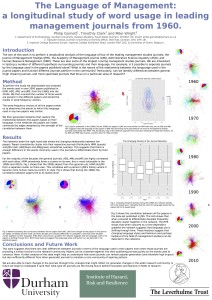I recently applied for one of the Twitter data grants. My application was declined which was a shame. I think I probably wanted too much data. Not to be deterred I have applied for money elsewhere. I want data to do some analysis on response to political events by twitter users, with a view to understanding how twitter users interact with debates around politics. Fingers crossed I have more success this time.
HoC Home Affairs Committee
Meeting on the 3rd of December 2013. Alan Rusbridger, editor of The Guardian, answers questions on counter-terrorism.
Book Publication
I have been trying to get a book off the ground for a couple of weeks. I don’t want to give too much away but it will (I hope) be about who has access to knowledge and for what purpose. Its a book that I have been planning in my head for a while. Problem is that it doesn’t sit neatly into a theme of academic publishing, it sort of sits between themes. Therefore getting the proposal to the right editor at the right publisher is proving difficult.
ISC of Parliament 7th of November 2013
Intelligence and Security Committee in November. Present were, Sir Iain Lobban, Director, GCHQ, Mr Andrew Parker, Director General, Security Service, and Sir John Sawers, Chief, Secret Intelligence Service. They were answering questions on the behaviour of the intelligent services in light of the Snowden Leaks. They weren’t given much of a hard time. Worse, its not about giving them a hard time really, but they weren’t asked the right questions. One has to wonder if the right people were asking them.
William Hague Statement on Snowden Leaks 10th June 2013
I’m going to collect together important reports and parliamentary discussions etc on political response to the Snowden leaks. Partly for my own research into the leaks, but also as I think its useful to dig these things out into one place.
This is the statement from, and questions to William Hague MP (foreign security at the time) on the 10th of June 2013. The whole debate has an air of, “nothing to see here”. Interesting as before William Hague MP, Kenneth Clarke MP talks about his visit to a Bilderberg group meeting. Also has a humorous, “nothing to see here”, feeling to it.
The statement misses the point, spending a lot of the time praising good work of the security agencies. They do much good work, but it doesn’t justify the extreme level of invasion into our private lives by home and foreign security agencies. Or the systematic undermining of the security of the internet. Which could be exploited by organisations that aren’t there to look after us.
Journal of Management Studes at 50: Trends over Time
This was an interesting paper that I contributed a section too. It was a look back, and in a sense, a look forwards at four leading management studies journals, ASQ, JMR, JMS and HRM. My involvement was to look at the changing content of the journals in terms of the frequencies of the words being used. Even just looking at the words we were able to separate papers to their publishing journal, and when displayed as a network of correlations papers tended to cluster into journals. This is interesting as it does indicate that journals do have a house style that people inevitably conform to. The causality of how this happens is not clear, it could either be that journals influence how people write, or that people writing about similar things just tend to use similar words and then publish in a sub-set of journals. Further more we where able to look at the changing word use in a single journal through time. Again we were able to see that papers published in different periods of time tended to be most closely related to each other. The full paper is available online, and there is a poster looking at the data also linked below.

I intend to pick this work up again in the near future.